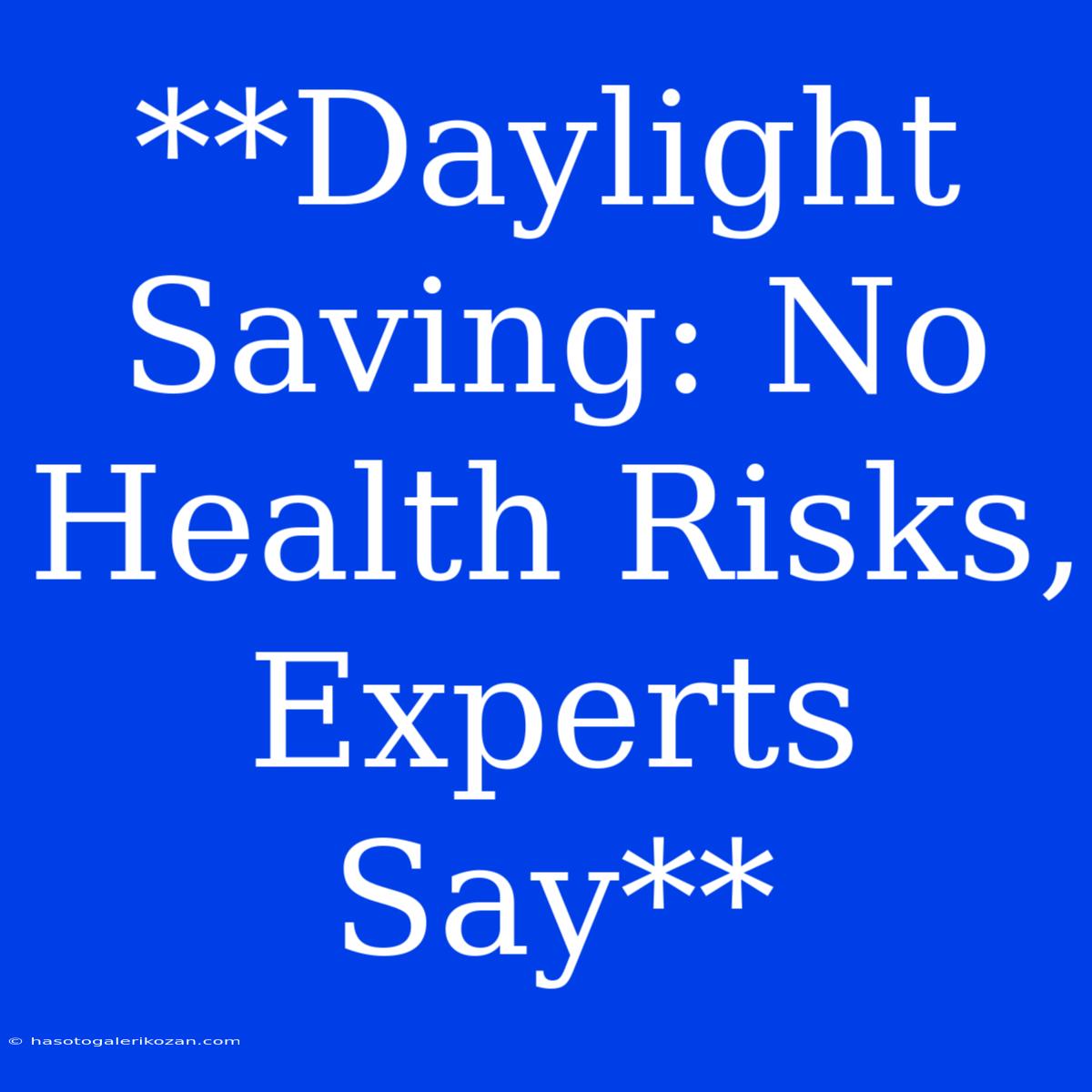Daylight Saving: No Health Risks, Experts Say
The annual switch to Daylight Saving Time (DST) is upon us, and as always, the debate about its potential health risks is reignited. While some believe that the time change can disrupt sleep patterns and lead to various health issues, experts overwhelmingly agree that there is no significant evidence to support these claims.
A Look at the Research
Studies on the health effects of Daylight Saving Time have yielded mixed results, but none have conclusively linked it to major health risks.
Here's what the research shows:
- Sleep Disruption: While DST can temporarily disrupt sleep patterns, the effect is usually mild and short-lived. Most people adjust within a few days.
- Heart Attacks: Some studies have found a slight increase in heart attacks during the week following the spring time change. However, these increases are small and may be due to other factors like seasonal changes or increased stress.
- Mental Health: There is no concrete evidence suggesting that DST has a significant impact on mental health conditions like depression or anxiety.
It's important to note that correlation does not equal causation. While certain health events might coincide with DST, this doesn't automatically mean the time change is responsible.
Strategies for Managing the Time Change
While DST might not pose serious health risks, some people experience temporary discomfort during the transition. Here are some helpful tips:
- Adjust Gradually: Begin adjusting your sleep schedule a few days before the time change. Go to bed and wake up 15 minutes earlier each day.
- Maintain a Regular Sleep Routine: Stick to a consistent sleep schedule, even on weekends, to maintain a healthy circadian rhythm.
- Create a Relaxing Bedtime Routine: Include activities that promote relaxation, such as taking a warm bath, reading a book, or listening to calming music.
- Avoid Caffeine and Alcohol Before Bed: These substances can interfere with sleep.
- Expose Yourself to Sunlight: Getting natural light during the day helps regulate your sleep-wake cycle.
The Takeaway
While the debate about Daylight Saving Time continues, the scientific evidence suggests that it does not pose major health risks. By adopting healthy sleep habits and practicing a few simple adjustments, most people can easily navigate the time change without experiencing significant negative effects.
